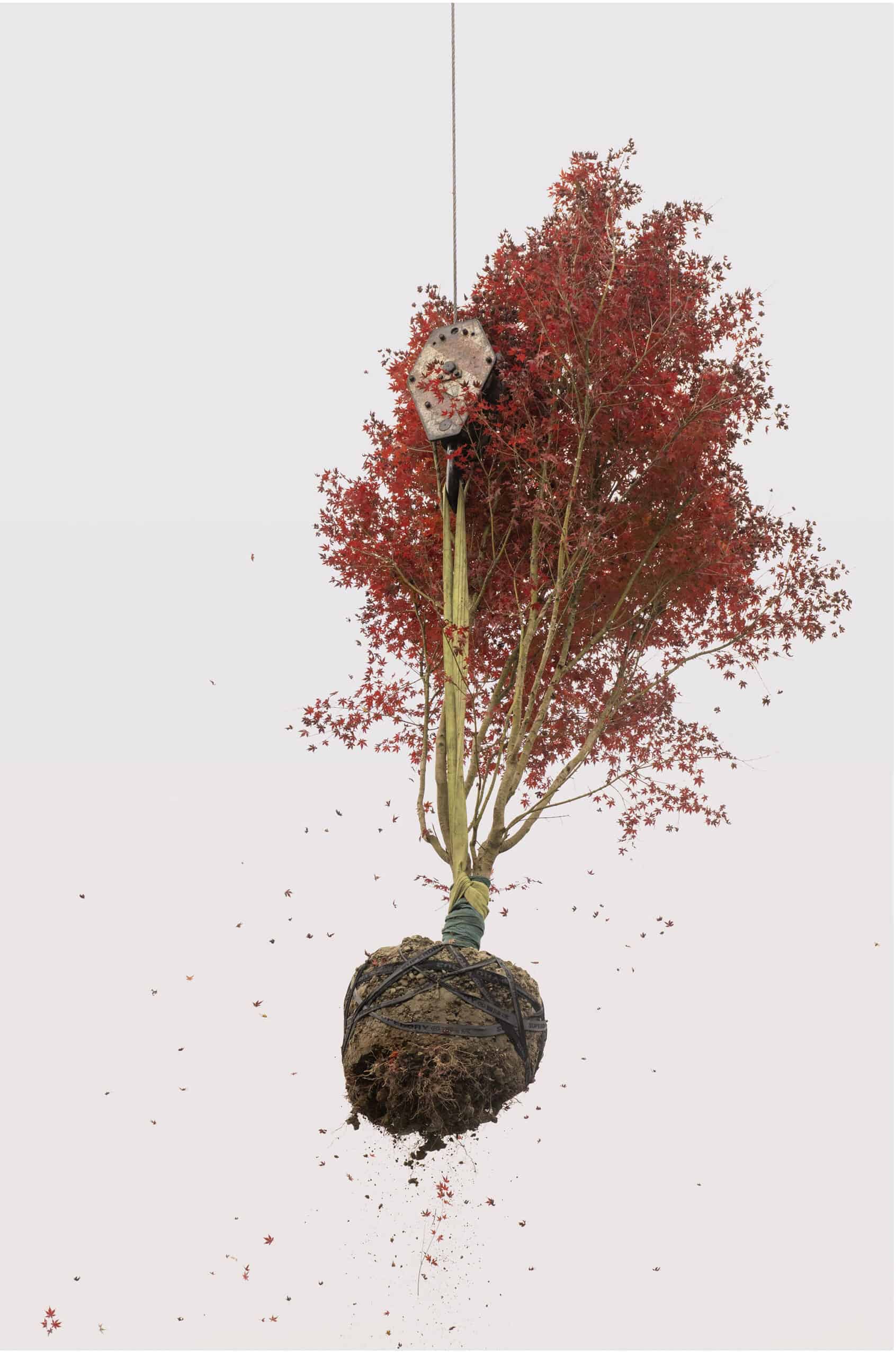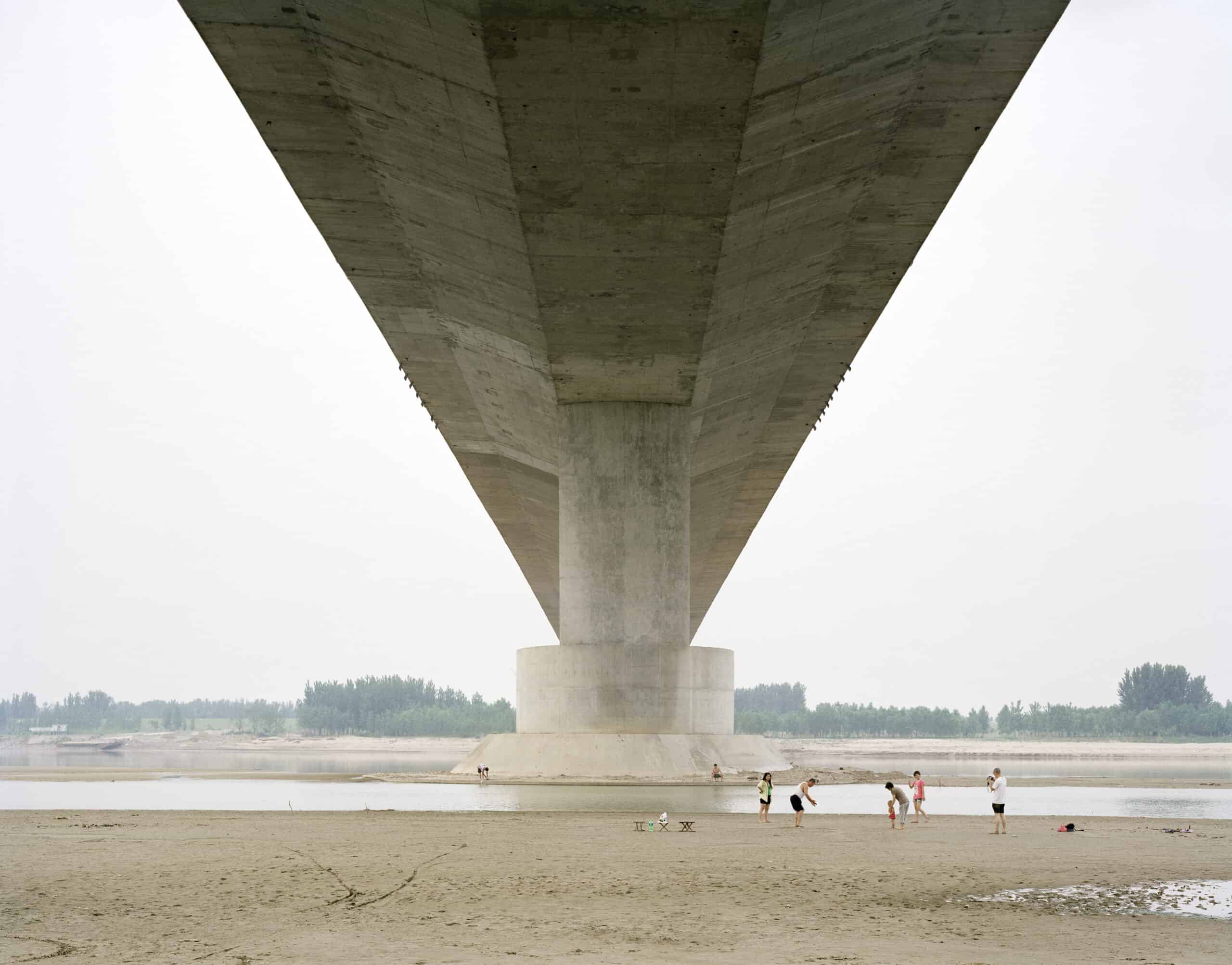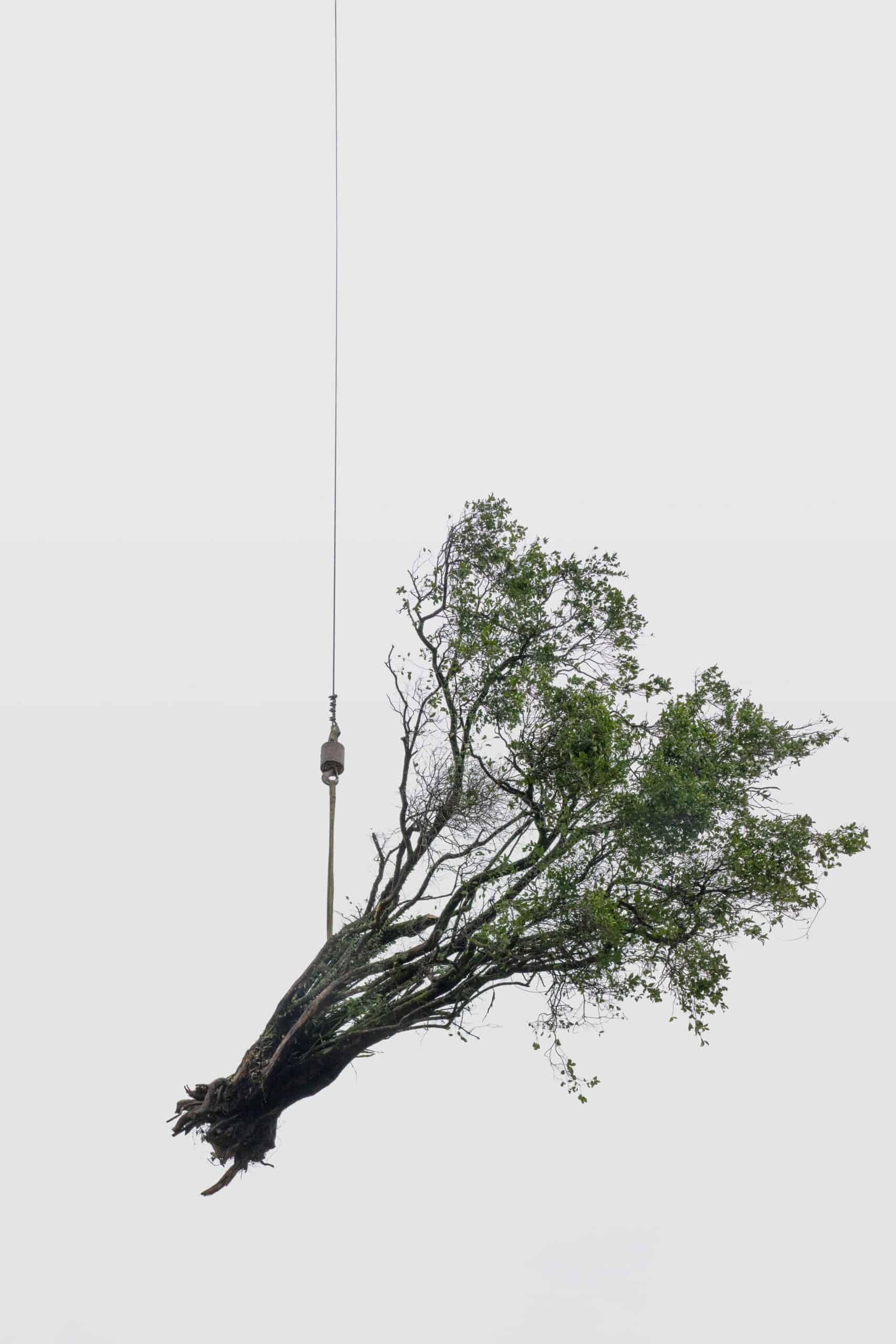
Zhang Kechun, Maple Tree (2021)
Zhang Kechun uses photography to explore the significance of nature in modern China. He has said that in China natural phenomena hold a particular cultural significance, that ‘rivers are always the heaviest carriers of the Chinese people’s affection.’ Since the middle of the twentieth century, China has seen significant and rapid industrialisation that has caused deep changes in how people live and how they understand their country. The artist sees a ‘strong destructive power which cannot be halted’ resulting from China’s rapid modernisation. His photographic projects are a prolonged look at cultural roots interacting with accelerating economic growth. Zhang photographs individuals who, although impotent in the face of such colossal forces of change, remain connected to the landscape – ‘those people who are still in company with mountains and waters.’
In his latest project, The Sky Garden, Zhang would walk in the woods that were built to feed China’s modernisation and photograph the trees as they were uprooted for transportation. In this scene of upheaval the tree is for a second frozen, hung suspended and inept. The series won first place in the Still Life Category at the 2023 Sony World Photography Awards. As China’s urban population continues to grow, cities are expanding and there is an increasing demand for trees that can be incorporated into built urban environments. Almost every Chinese city needs a tree nursery in order to meet the demand of China’s ongoing urban construction – gardening itself has become a large and lucrative industrial sector.
Zhang selected photographs of trees of a variety of genuses, each is individuated by its distinct characteristics. In this bizarre posture, dangling in the air, our understanding of a tree takes on a new dimension. We get an unusual and intimate understanding of the qualities of these specimens from how each interacts with gravity, with the machinery, with the air. While some trees hold a particular cultural significance for Chinese audiences, Zhang believes trees play a role in cultural lore universally, throughout Eastern and Western cultures both ancient and modern. The significance of the central image of this series thus surpasses spatio-temporal distinctions and allows a communion of different civilisations.
In these works the sky creates a flat and anonymous backdrop, it is largely monotonal but not neutral. Subtle gradations of colour and the delicate precision of the shade give each tree-subject their own particular context, frame, and circumstances. In Zhang’s work there is a play of blended tones, creating a calm yet heavy atmosphere.
The commitment to repetition of a single motif in The Sky Garden is a radical new departure from Zhang’s previous projects, which explored themes of modernisation on a grander scale, rather than communicate a single conceptual idea. The Yellow River, for example, was a project that sought to document many components of modern China’s relationship to the Huang He river, considered the cradle of Chinese civilization. Zhang photographed the people and places he encountered while travelling the ancient waterway. This series explores the religious, the environmental, the socio-economic realms in modern China as it really is and modern Chinese people as they actually are.

Zhang Kechun: The Yellow River. A Family Spending the Weekend under a Bridge, Shandong, China, 2011
The Sky Garden, however, communicates a precise concept: the tension between two national ideologies. On one hand there is an idea of China as a coherent and enduring civilisation, gaining its identity through communion with the natural world and an ancient culture. On the other, an idea of modern China as the ‘world’s factory,’ a prosperous economy pushing technological advancements and forming a vital component of international Capitalism. Whether these two Chinas are or were ever really existing as anything other than pure ideology is unclear. In The Sky Garden, Zhang is not looking at the real modern China. Instead he is drawing attention to a deep fault in the nation’s identity.
The influential social psychologist Kuo-shu Yang has proposed that, as a response to large-scale and fast-paced modernisation, many in China have developed two distinct kinds of psychological systems. ‘Psychological traditionality,’ pertaining to a set of traits such as filial piety and ancestral worship, and ‘psychological modernity,’ relating to ideas promoted by urban society, such as egalitarianism, secularism and citizen’s rights.
Kuo-shu might understand The Sky Garden as a photographic illustration of his theory, even an assertion that not only are there two distinct psychological systems, but they are also in conflict. Zhang has said, however, that he aims to ‘create a modern point of contact for our contemporary and sociologically concerned eye.’ In this light, we might see Zhang’s broader practice as an attempt to find a point at which the two psychological systems can meet and coexist – to push through one towards the other and so collapse the divide
(By Tom Winter)
